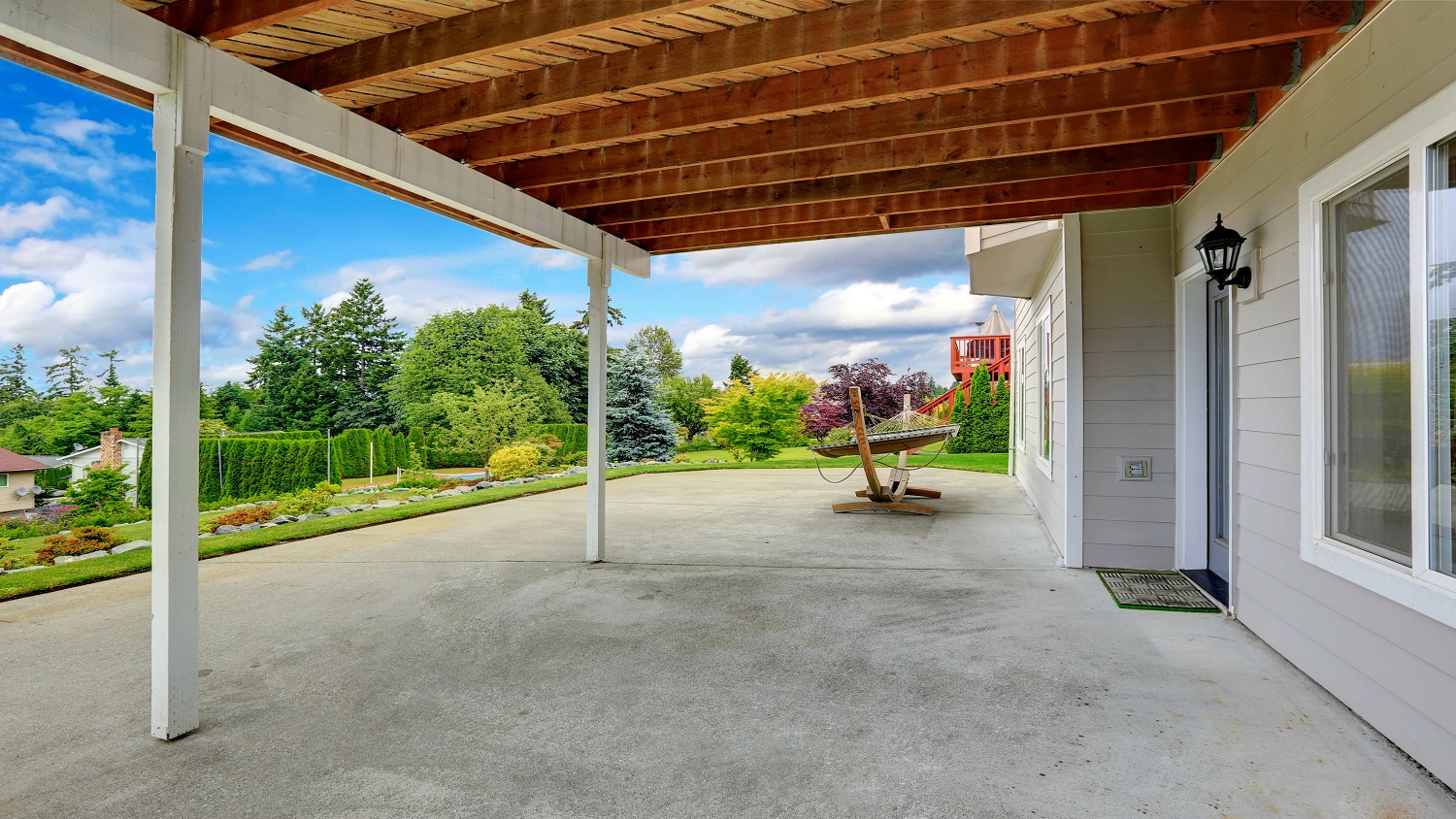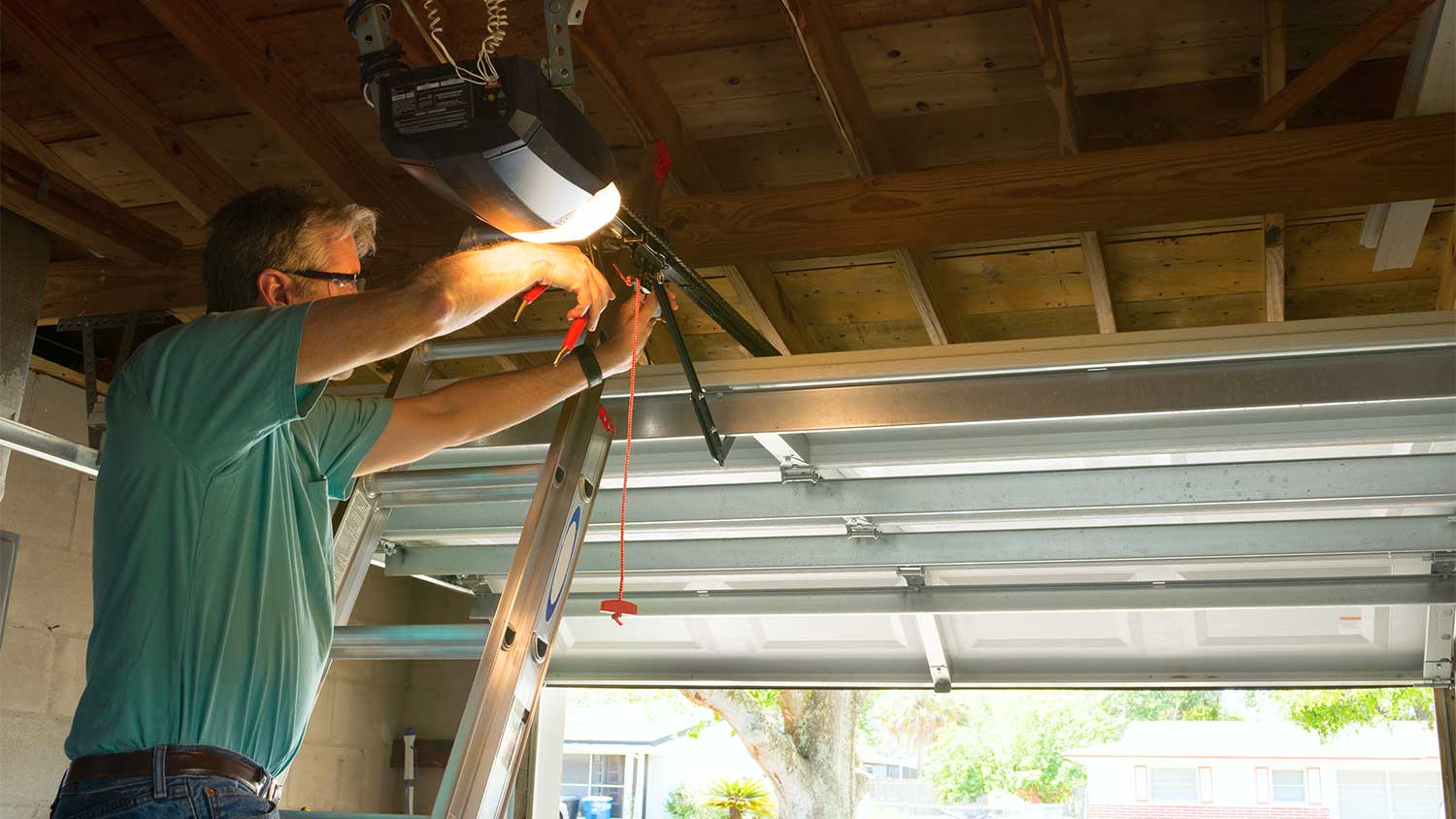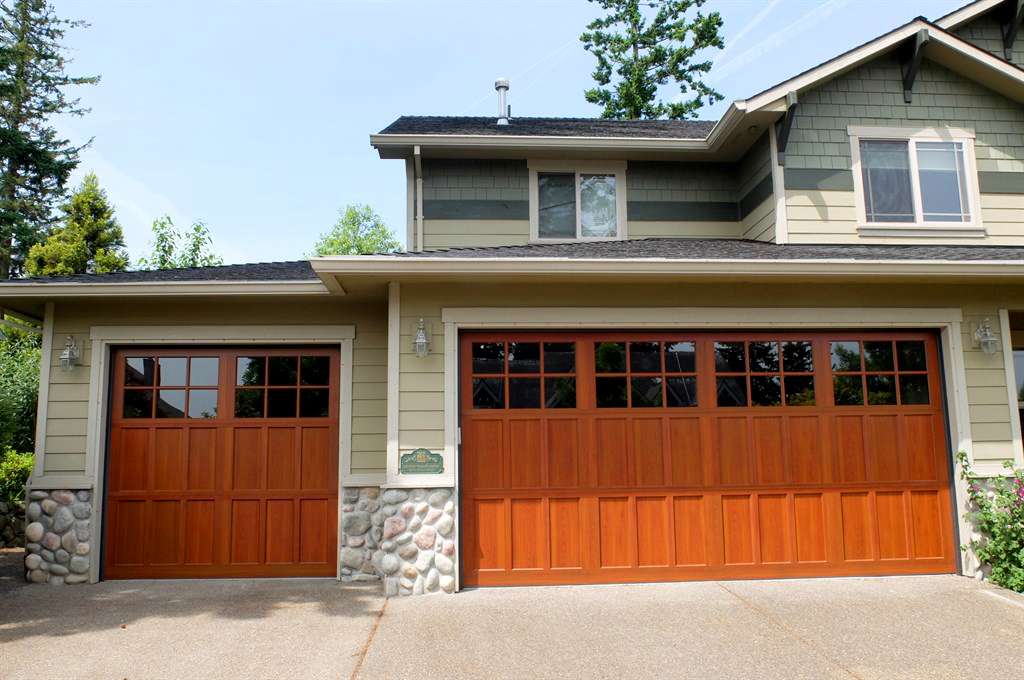
Need to replace your garage door? Here’s how much it costs, what factors affect cost, and what to expect.
The average RV garage costs $90,000 to build, with material and construction prices typically ranging from $36,000 to $140,000.


Building a dedicated RV garage protects your rig from harsh weather and instantly upgrades your home’s curb appeal.
Plan on about $90,000 on average.
Smaller builds can run $36,000, while oversized or highly customized garages can top $140,000.
Key cost factors include the location, size, and materials of the garage, and the benefits include increased security, curb appeal, and convenience.
This article was created using automation technology and thoroughly fact-checked and edited by HomeAdvisor Editor Ryan Noonan.
Building an RV garage comes with an average price tag of about $90,000, or roughly $40 to $140 per square foot. However, it can range from as low as $9,000 to as high as $180,000 depending on the design and local labor rates. Picking the right location, sizing the space for your rig, and choosing quality materials all influence what you’ll pay. Hire a licensed garage builder near you to make sure the structure meets code, wraps up on schedule, and fits your RV like a glove.
Location, square footage, materials, and labor drive your final price.
Begin by selecting the ideal location for the garage. You’ll need good drainage, straightforward access to plumbing and electrical lines, and an exterior style that blends with your home.
Where you place the garage dictates its size, materials, and the number of doors or windows you’ll need. If the site sits far from the house, plan on higher costs to run power and plumbing. Check local bylaws and building codes as well—they may limit the garage’s height or footprint.
Your RV’s length and width drive garage size—bigger rigs need bigger buildings. Expect to pay between $40 and $140 per square foot, depending on the design and materials used. A typical RV garage measures about 20 feet wide, 50 feet long, and 14 feet high.
Some homeowners opt to add extra space in the RV garage for additional features or storage. Keep in mind that some municipalities have codes that require RV garages to be a specific size; therefore, refer to your local building department for the relevant regulations.
| Square Feet | Average Cost Range |
|---|---|
| 700 | $28,000–$98,000 |
| 800 | $32,000–$112,000 |
| 850 | $34,000–$119,000 |
| 900 | $36,000–$126,000 |
Whether the structure is attached to your home or stands alone is one of the biggest cost drivers for any garage, including one built for an RV.
An attached RV garage shares at least one wall with your home. Because RVs are tall, the structure has to be, too. Attached builds are less expensive than detached ones, but you’ll likely spend more on insulation to maintain steady indoor temperatures.
Material choice is a significant price factor, no matter whether the garage is attached or detached. Just like a home build, everything from the foundation to the siding affects the bottom line.
The most common siding materials are vinyl, wood, brick, and metal. Vinyl siding is the most standard, ranging from $3 to $12 per square foot, while brick can run up to $20 per square foot. In addition to the main structure, you will also need to budget for other materials, including:
Roofing material prices range from $5,000 to $10,000
Garage door prices cost $1,300 to $7,000, depending on the size
Garage door opener installation costs an average of $450 each.
Window installation costs anywhere from $3,445 to $11,835
Insulation costs between $0.50 and $1.25 per square foot, $350 to $875 for a standard 700-square-foot garage. If you want to install an insulated garage door on top of this, you could pay an additional $4,000.
Labor to build an RV garage runs $20 to $75 per square foot—about half of the total project cost. Share your RV’s dimensions and must-have features with at least three local garage builders and ask each one for a written quote so you can compare apples to apples.
Hiring a local garage builder can be more cost-effective than hiring each specialist individually. Professional contractors can handle every aspect of the build, including hiring subcontractors to work on key components such as plumbing, siding, HVAC, and electrical work.
You will likely need to apply for and obtain a permit to build an RV garage. Building permits cost $1,200 to $1,500, depending on your location. Check with your local government or ask your general contractor to get the required building permits on your behalf.
Adding an RV garage is often a wise investment, especially in areas where RV ownership is prevalent. The expected return on investment (ROI) varies, but many homeowners can recoup about 60% of their initial cost when selling their property.
The actual increase in home value depends on factors like the quality of construction, local real estate market conditions, and the garage design. Potential buyers often view a well-constructed RV garage as a premium feature, making it a significant selling point. While building an open-air carport may be less expensive, a fully enclosed RV garage offers better protection for your recreational vehicle from the elements. It provides greater security and can allow for more storage options.
Planning ahead keeps costs in check and ensures the finished garage truly works for you and your RV.
Request detailed quotes from multiple contractors to compare pricing.
Consider a simpler design with minimal architectural complexities to reduce labor and material costs.
Opt for pre-engineered metal building kits, which can be more cost-effective than traditional construction methods.
When selecting materials and components, factor in long-term maintenance, like future garage door repair costs.
Install water, electric, and sewer hookups for your RV during the construction phase.
No place is more important than your home, which is why HomeAdvisor connects homeowners with local pros to transform their houses into homes they love. To help homeowners prepare for their next project, HomeAdvisor provides readers with accurate cost data and follows strict editorial guidelines. After a project is complete, we survey real customers about the costs to develop the pricing data you see, so you can make the best decisions for you and your home. We pair this data with research from reputable sources, including the U.S. Bureau of Labor Statistics, academic journals, market studies, and interviews with industry experts—all to ensure our prices reflect real-world projects.
From average costs to expert advice, get all the answers you need to get your job done.

Need to replace your garage door? Here’s how much it costs, what factors affect cost, and what to expect.

How much does it cost to build a garage? Explore cost factors, budgeting tips, and how a garage adds to your home’s value with our detailed cost guide.

Wondering who seals concrete? Learn who to hire, when DIY makes sense, and how pros seal driveways and garage floors—start your search now

Wondering who to hire for garage door repair or installation? See when to call a garage door installer or technician and what to ask.

Discover who to hire to build a garage. Learn whether to hire a general contractor or garage builder, what to expect, and how much it costs.

Keep your home safe and secure with these garage door repair and maintenance tips.